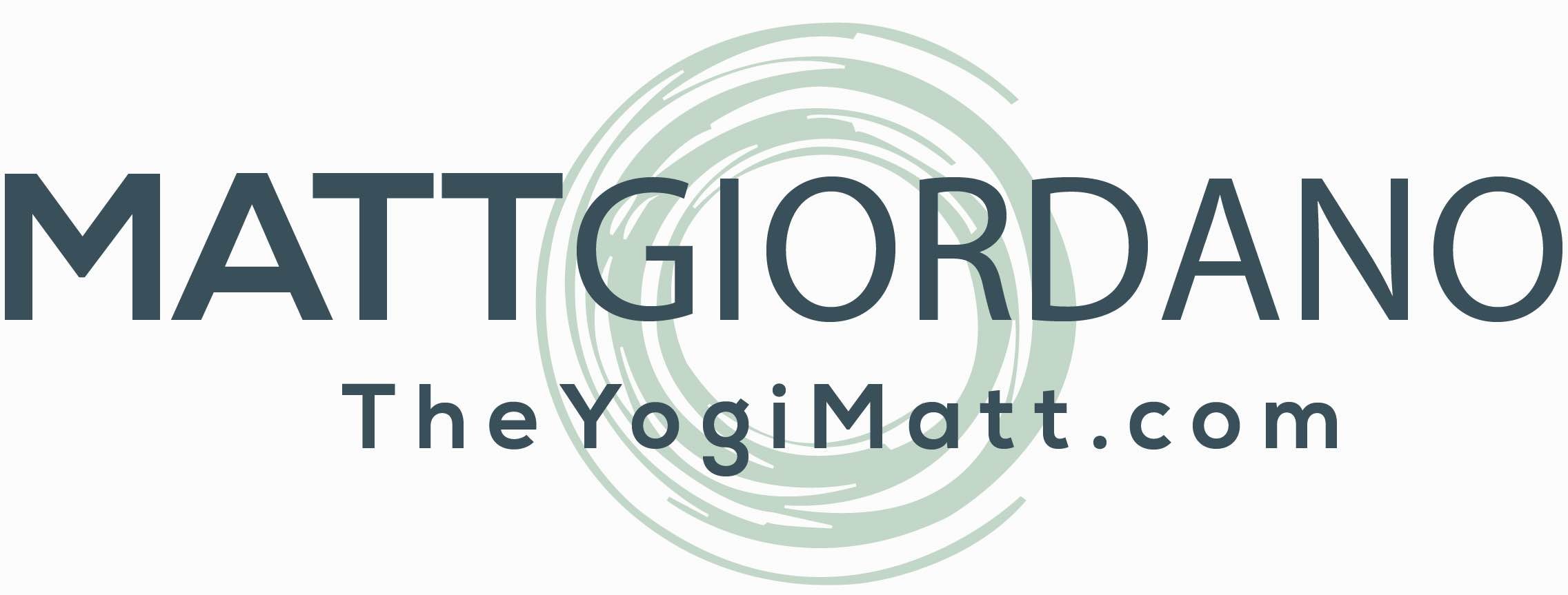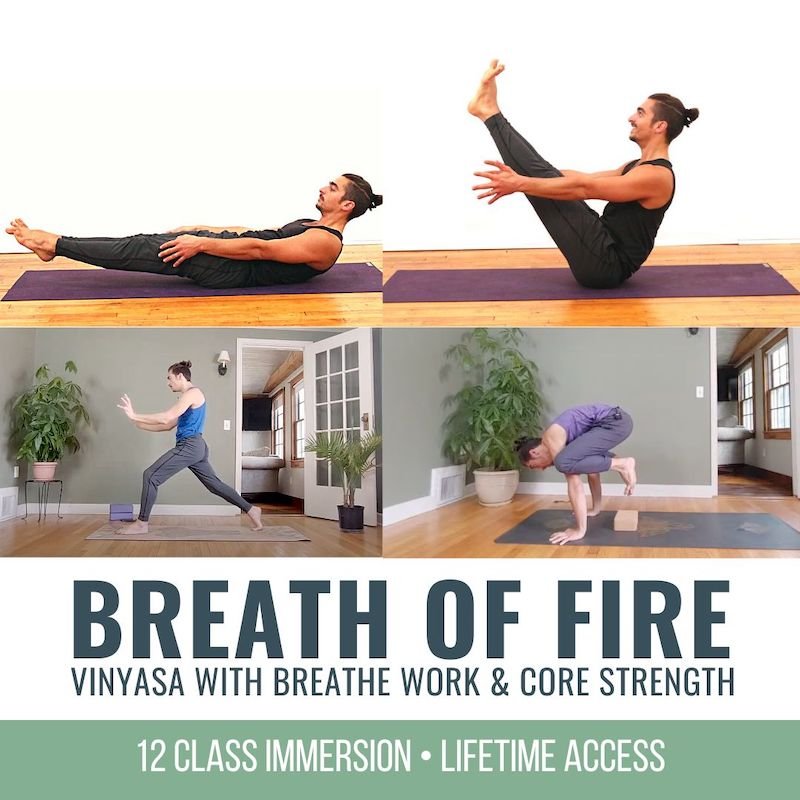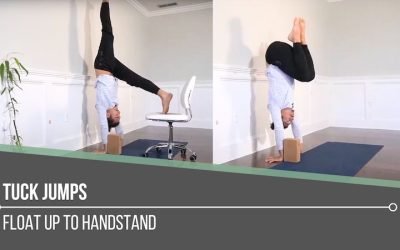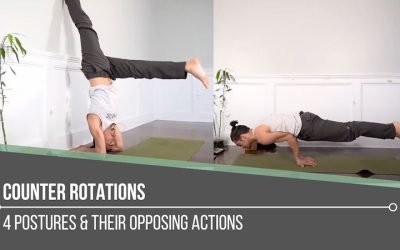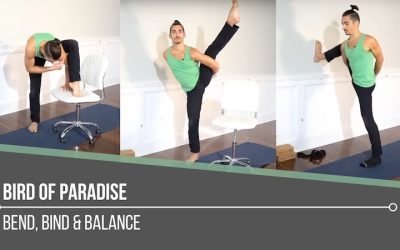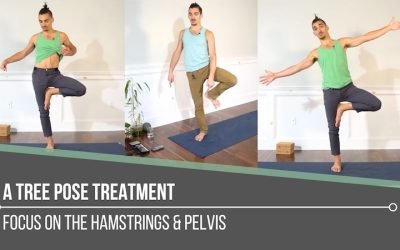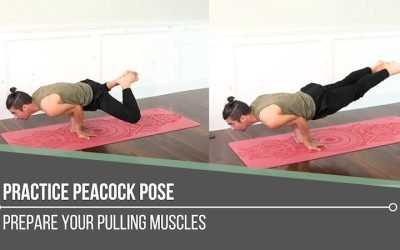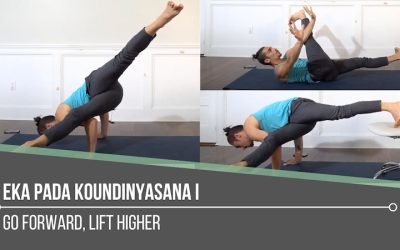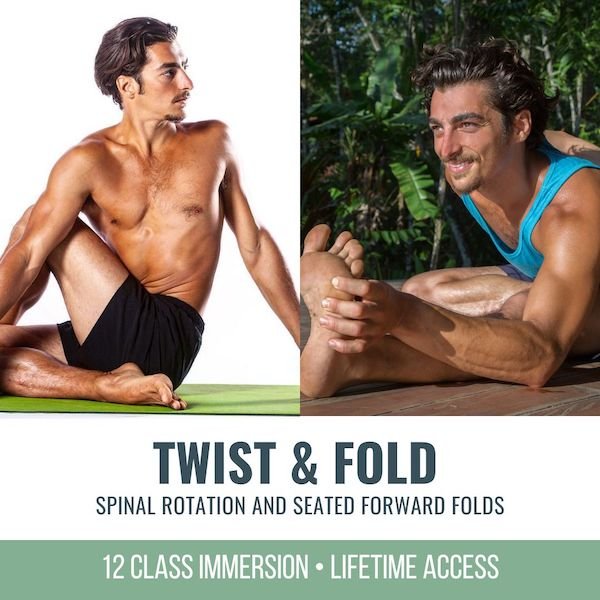Tuck JumpsHandstandTUCK JUMPS Without a doubt, tuck jumps are a confidence booster when it comes to preparing for handstands. When we go through the course of preparation, it’s not the first step, but it’s definitely a way of identifying where strength and...
Pigeon Leg Lifts
Pigeon Leg Lifts
Ignite Your Core-Hip Connection
pigeon drill
PIGEON LEG LIFTS
Pigeon Leg Lifts are the perfect example of how you can flip a common yoga posture on its head. You may have explored several variations of Pigeon Pose, but this out-of-the-ordinary drill/variation requires something quite different. Pigeon Leg Lifts boost your ability to feel how much of a role the psoas plays in how you experience your core. In fact, the psoas is considered to be part of the core, but it is not always part of the conversation. Its location in the body, combined with the knowledge of how to highlight it in your yoga practice, helps to bridge the gap between your core and hips. Tapping into this results in greater strength and stability in your yoga practice.
BREATH OF FIRE
- Moderate Vinyasa-style classes
- Core strengthening & integration
- Master your breath with pranayama practices
- Access your core in arm balances, heart openers, twists, forward folds, inversions, and more
- Learn where and how to breathe in challenging postures
- Each class will include one pranayama (breathwork practice) and several core strengtheners
- Access your core muscles: deep, superficial, anterior, posterior, and lateral
- 12 Classes: All levels appropriate
- Lifetime unlimited access to all
- Attend the livestream OR practice the replays any time that’s convenient for you
$148.00
THE PSOAS
The iliopsoas (often referred to as the psoas) is actually a combination of two muscles, namely the iliacus and psoas major, but is often thought of as one. It’s unique in that it’s the only muscle in the body that crosses over between the upper and lower body. The psoas is a deep muscle that attaches to the lumbar spine and the inner thigh bone. Due to its location in the body, one of its main roles is to stabilize the lumbar spine. The psoas is both a hip flexor and external rotator of the hip, playing a significant role in how you move, on and off of the yoga mat. Contracting this muscle in Pigeon Leg Lifts promotes deeper range of motion and helps you connect more deeply with the abdominal muscles that are part of the core (i.e., rectus abdominis, transverse abdominis, and obliques).
WATCH THE VIDEO
PIGEON LEG LIFTS: IGNITE YOUR CORE-HIP CONNECTION
THE CORE-HIP CONNECTION
The psoas works in conjunction with the other core muscles. As mentioned, it’s both a hip flexor and hip external rotator, but it also creates flexion of the spine. Spinal flexion is an entry point to understanding the core-hip connection. In my previous blog, Rectus Abdominis Handstand Drill, I discussed how Matt very intentionally utilizes the activation of rectus abdominis in order to create spinal flexion. Both the psoas’s ability to create the same action and the placement of its attachment points reveal that the psoas is essentially a bridge between the core and the legs. Understanding the link between the core and the hips has the ability to transform your yoga practice.
Activation and strengthening of the psoas is not often illuminated in unique ways in yoga classes. Practicing Pigeon Leg Lifts offers the opportunity to heighten the sensations within the core and the hips.
200 HOUR ONLINE TEACHER TRAINING
GET CERTIFIED & DEEPEN YOUR YOGA PRACTICE
- Deepen your yoga practice
- Build confidence speaking in front of groups in person and online
- Learn foundational class structures and templates
- Learn techniques for a wide range of yoga postures
- Get certified and highly qualified to teach yoga
- Yoga Alliance Globally Recognized Certification Program
WAYS TO EXPLORE PIGEON LEG LIFTS
In today’s video, Matt demonstrates 2 ways to execute Pigeon Leg Lifts. In the 1st option, you’ll see that it’s almost like a “push-up” action with multiple repetitions. The pushing up, however, comes from driving your hips up as far away from your mat as possible. In both options, your arms stay straight, but the 2nd requires that after you lift your hips, you sustain and hold for a few breaths. If you’re looking to fire up the core, then Pigeon Leg Lifts will do it! You can’t escape the intensity of what’s involved. As you lift your hips all the way up, you are simultaneously creating more spinal flexion while your front upper thigh is in external rotation to maintain the “Pigeon position.” If that’s not enough, the action of pressing down the ball mound of the back foot also ignites the psoas and the hip flexors of the back thigh.
300 HOUR ONLINE TEACHER TRAINING
GET 500 HOUR CERTIFIED AS A MASTER TEACHER
Master your skill set as a teacher through refined techniques, anatomy, biomechanics, sequencing, philosophy, meditation techniques, theming, yoga business, and much more!
- Get 500 hour certified
- Learn anatomy, biomechanics, asana techniques
- Expand your teaching skills
- Masterful sequencing and verbal delivery
- Learn meditation and breathwork techniques
- Transformative tools: theming, dharma talks, satsang
WHY IS THIS USEFUL?
The strengthening of the core, including the psoas, along with deeper spinal flexion is no doubt the “show stopper” of these Pigeon Leg Lifts. Doing this drill will promote greater stability and mobility for enhanced movement on and off of the mat. What’s incredible about the way Matt teaches is that he always provides a compassionate push. In the full class, he says that deliberately engaging muscles in your practice helps you understand what you struggle with the most. Once revealed, this understanding provides opportunities to work on those areas in order to achieve fuller body participation. Within all of this physical awareness, what ends up happening is an unfolding of the mind. Your ability to confront your perceived limitations also strengthens.
Join Matt’s Breath of Fire Immersion to experience the fullness of your practice.
See you on the mat!
The 200 Hr. Teacher Training: Click Here to See the Next Start Date
The 300 Hr. Advanced Teacher Training: Click Here to See the Next Start Date
Article by Trish Curling
Video Extracted From: Breath of Fire Immersion
BREATH OF FIRE
- Moderate Vinyasa-style classes
- Core strengthening & integration
- Master your breath with pranayama practices
- Access your core in arm balances, heart openers, twists, forward folds, inversions, and more
- Learn where and how to breathe in challenging postures
- Each class will include one pranayama (breathwork practice) and several core strengtheners
- Access your core muscles: deep, superficial, anterior, posterior, and lateral
- 12 Classes: All levels appropriate
- Lifetime unlimited access to all
- Attend the livestream OR practice the replays any time that’s convenient for you
$148.00
Continue Learning
Tuck Jumps
Counter Rotations
Counter RotationsStabilityCOUNTER ROTATIONS The isolation of specific articulations in a yoga posture can be tricky to implement when we’re still learning how our bodies move. When we begin to explore counter rotations, this layer might feel confusing or even...
Bird Of Paradise
Bird of ParadiseSvarga DvijasanaBIRD OF PARADISE In Bird of Paradise, we’re balancing while binding, which can be quite an undertaking. Preparation for this posture requires shoulder mobility, hip mobility, and a tremendous amount of strength. What we also need to be...
A Tree Pose Treatment
A Tree Pose TreatmentVrksasanaA TREE POSE TREATMENT Tree Pose may appear to be a posture we can just “jump into” because of its “accessibility” from anywhere we might be standing, but it definitely requires more refinement than we might think. A treatment to revive...
Practice Peacock Pose
Practice Peacock PoseMayurasanaPRACTICE PEACOCK POSE We go to our yoga practice for many different reasons at any given time. In our asana practice, we are sometimes seeking softness and ease. At other times, we might be striving for vigour and strength. Peacock Pose...
Eka Pada Koundinyasana I
Eka Pada Koundinyasana IArm BalanceEKA PADA KOUNDINYASANA I If Side Crow is already part of our practice, then Eka Pada Koundinyasana I is like adding on another layer to that posture, because they are quite similar. The added layer is that we extend the top leg...
THE FREE TECHNIQUE PACK
When You Subscribe, You Will Get Instant Access to
- the Technique Pack: 15 yoga pose breakdowns
- exclusive online course discounts
- exclusive blogs and videos
